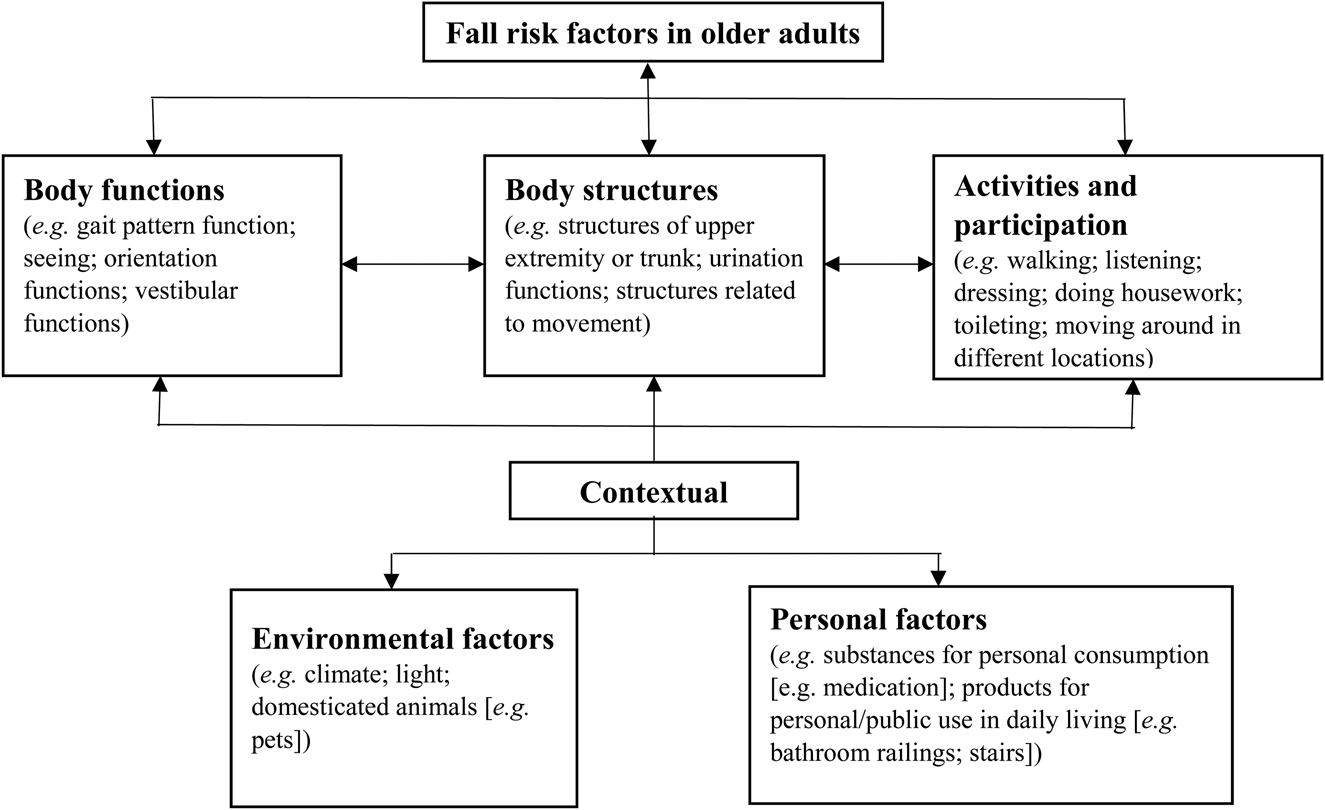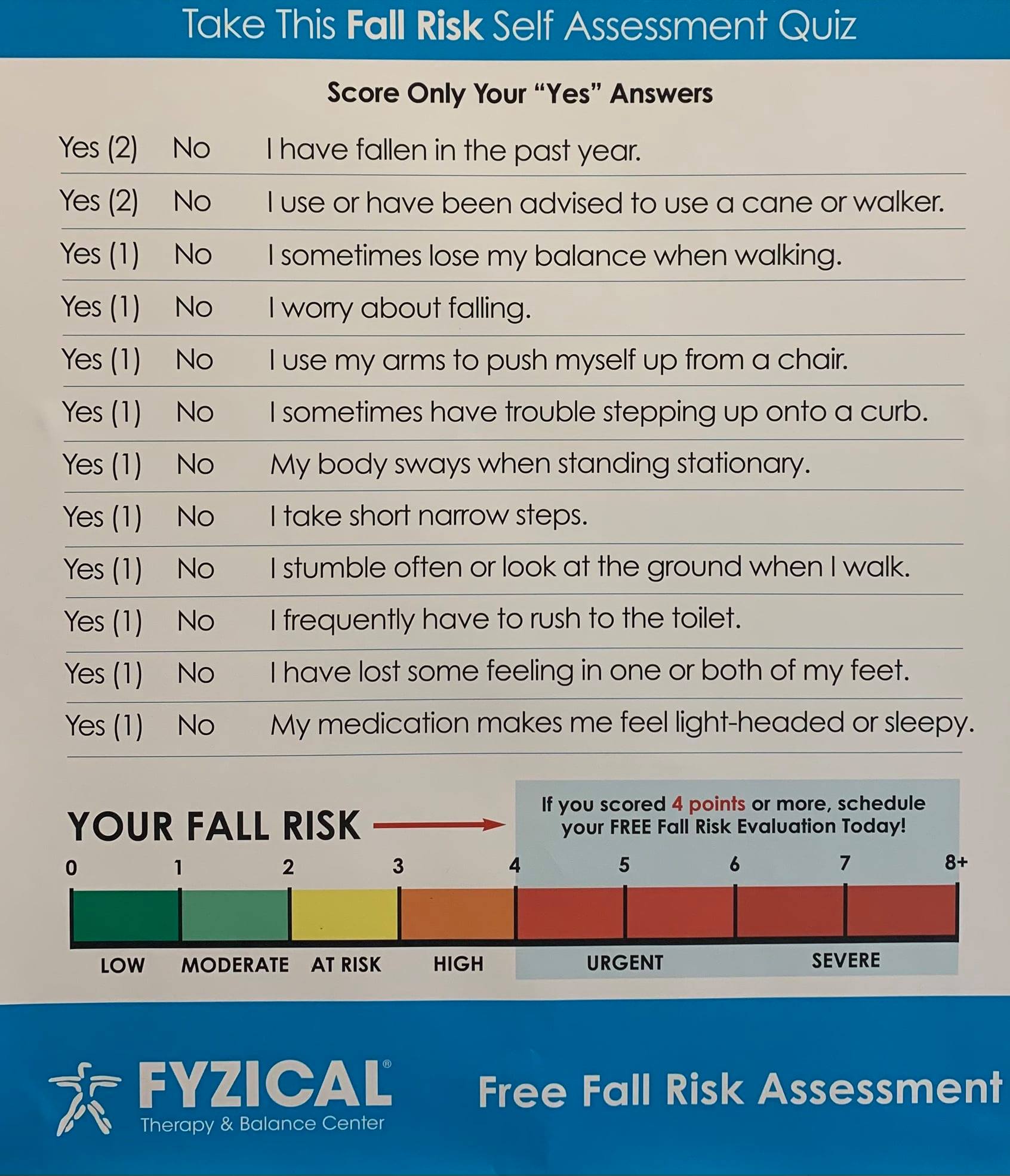Some Known Details About Dementia Fall Risk
Some Known Details About Dementia Fall Risk
Blog Article
All About Dementia Fall Risk
Table of ContentsThe Single Strategy To Use For Dementia Fall RiskThe 8-Second Trick For Dementia Fall RiskThe Ultimate Guide To Dementia Fall RiskWhat Does Dementia Fall Risk Do?The Ultimate Guide To Dementia Fall Risk
Based on indications and signs and symptoms, such as evidence of head injury or a new focal neurologic deficit, calculated tomography or MRI of the brain might be suggested. An assessment for root causes of syncope must be conducted just if there is solid suspicion, as in the instance of recurring, inexplicable falls
Health care suppliers utilize a loss danger assessment to recognize your threat elements for falling and make handy recommendations. A fall threat evaluation is crucial since recognizing which elements raise your chances of dropping helps you: Decrease your risk of falling or hurting on your own.
Optimize your ability to move and be active. Preserve a healthy and balanced, independent life. All grownups 65 years and older must have a preliminary loss danger testing. Your doctor may ask you whether you: Feel unsteady when standing or walking. Have actually fallen in the past year. Bother with dropping. If you answer yes to any of these inquiries, your doctor will advise an added, more detailed examination.
Dementia Fall Risk Can Be Fun For Anyone

Explore this detailed nursing care strategy and management guide to properly protect against danger for falls amongst patients. Obtain essential knowledge about the nursing evaluation, taking care of diagnosis, and objectives specifically tailored to clients that go to danger for falls. A is specified as an event that leads to a person coming to rest unintentionally on the ground or floor or other reduced level (THAT, 2021).
According to the Centers for Disease read more Control and Prevention (CDC),, creating over 34,000 fatalities for that age group. Dropping is the 2nd leading cause of death from unintended injuries around the world. Fatality from drops is a serious and native trouble amongst older people. It is estimated that autumn fatality look at this web-site rates in the U.S

Each year, over 800,000 people are hospitalized since of drops. Registered nurses play a major function in stopping drops for their clients through education and learning, evaluating autumn risk, producing more secure settings, and providing interventions in stopping injuries from drops.
Falls are due to a number of factors, and an alternative method to the private and atmosphere is vital. Suppose an individual is considered at high threat for falls after the screening.
The Only Guide for Dementia Fall Risk
A requires utilizing a verified tool that scientists have actually taken a look at to be beneficial in calling the causes of drops in a person. The degree of loss danger can be determined utilizing the analysis of intrinsic and external elements.
People are extra likely to fall again if they have actually maintained one or even more drops in the past 6 months. The older populace is at enhanced threat of fall-related readmissions based upon a research determining the aspects predictive of repeat falls associated results (Prabhakaran et al., 2020). Persons with damaged recognition and disorientation may not recognize where they great post to read are or what to do to aid themselves.
Additionally, complication and damaged judgment enhance the patient's possibility of falling. The capacity of people to shield themselves from falls is affected by such variables as age and advancement. Older people with weak muscular tissues are most likely to drop than those that maintain muscle stamina, adaptability, and endurance. These adjustments include minimized aesthetic feature, damaged color assumption, modification in center of mass, unstable gait, reduced muscle mass strength, lowered endurance, altered depth understanding, and postponed response and reaction times.
Some Ideas on Dementia Fall Risk You Should Know
Much less contrast sensitivity was rather related to both raised rates of falls and various other injuries, while decreased visual acuity was only connected with raised loss rate (Timber et al., 2011). Sensory assumption of environmental stimulations is extremely important to security. Vision and hearing disability limitation the person's capacity to perceive dangers in the environments.
Older adults who have poor balance or trouble strolling are more probable to drop. These troubles may be associated with lack of exercise or a neurological reason, joint inflammation, or various other clinical problems and therapies. An important risk factor highlighted in a study is that grownups with rheumatoid arthritis go to high risk of drops, including swollen and tender lower extremity joints, exhaustion, and use psychotropic drugs (Stanmore et al., 2013).
Report this page